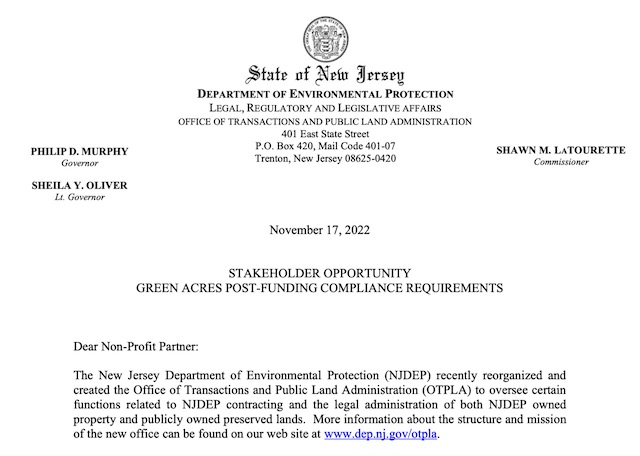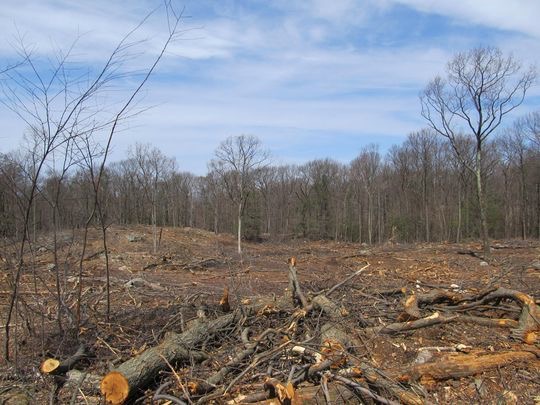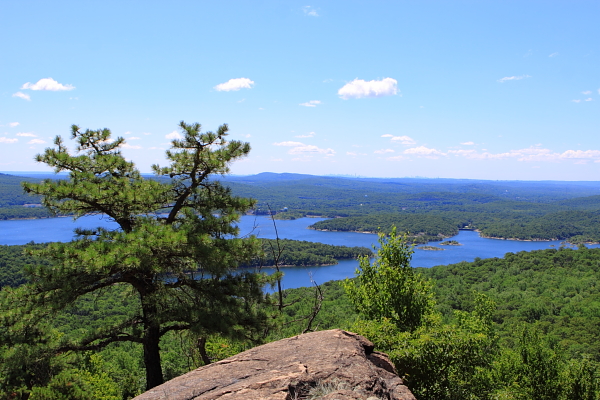Murphy DEP Bear Hunt “Imminent Peril” Declaration Must Not Be Allowed To Stand As Precedent For Violating Constitutional Due Process Guarantees and Public Participation Requirements
The Legal Stakes Are High
Murphy DEP Determination Is Based On Flawed Reasoning And Weak Science
“Imminent” – about to happen
“Peril” ~~~serious and immediate danger
I have been perhaps Trenton’s most lengthy, consistent, and aggressive advocate of strong DEP regulatory power. But not in two recent cases of DEP “emergency rules”.
This summer, I strongly opposed DEP Commissioner LaTourette’s plan to adopt DEP flood rules via “emergency rulemaking” because, despite the very real climate emergency, the legal standard of “imminent peril” was not even close to being met and because as a matter of principle I strongly oppose government edicts that trample people’s Constitutional rights, no matter how well intentioned.
The DEP “emergency” power is tyrannical. It provides DEP with sweeping unilateral power to impose regulatory mandates and without any justification or public review and comment. As such, it eliminates Constitutional due process protections and is fundamentally anti-democratic because it eliminates people’s rights to participate in regulations that effect their lives. It should rarely be invoked and only on the strongest scientific and factual grounds that compelling demonstrate a real “imminent peril”.
The ends do not justify the means.
In addition to legal violations and principles, the DEP’s assertion of the existence of an “emergency” was a flat out lie.
Any risks to people from flooding that could have been reduced by the DEP emergency flood rule were created by DEP themselves. DEP delayed flood rules for YEARS, while they continued to issue hundreds of new permits for development in flood hazard areas, putting more people and property at risk. DEP had ample time and opportunity to go through the normal public notice and comment rulemaking process. The DEP may not base an “emergency” on conditions they created. By attempting to invoke “emergency” rules, DEP obscured these flaws and dodged public accountability, while trampling on Constitutional rights.
We have many of the same conditions present in DEP’s emergency declaration to authorize the bear hunt –
You can read DEP’s “emergency rule” that provides the scientific and factual basis for that declaration. Read Gov. Murphy’s Executive Order #310 – which is required by the NJ Administrative Procedure Act -that concurs with DEP’s declaration.
I hope the lawyers for the bear supporters do not get bogged down in the scientific arguments, unreliable data that supports DEP’s determination, and serious flaws in logic in DEP’s emergency declaration and Comprehensive Black Bear Management Plan (more on that in a future post).
I hope they can stay focused on the Constitutional due process issues and the statutory legal basis for declaration of an emergency, which requires DEP to document an “imminent peril”:
Absent “an imminent peril to the public health, safety, or welfare,” the APA requires public notice and an opportunity for comment before the adoption of any rule. See N.J.S.A.52:14B–4. (NJ Supreme Court)
The NJ corporate business community strongly opposed DEP’s plan to adopt emergency flood rules. In a letter to Gov. Murphy, they clearly threatened litigation if DEP were to invoke emergency powers.
If this DEP emergency declaration is allowed to stand, the business community knows that they might be the next target of DEP emergency rules.
For example: To support an “imminent peril” determination from bears, DEP used: 1) unreliable data (not independently verified, no QA/QC); 2) statistically inferred or interpolated population estimates that deviate from prior methods (due to lack of data); 3) questionable and unpublished science; 4) non-transparent and non-validated models; and 5) non-published and non-peer reviewed Reports and a slew of studies.
The DEP rule didn’t even provide the underlying data, population models, and citations to or links to supporting science.
In terms of the reliability of the DEP “bear incident data”, could you imagine if you and your neighbors could just call a DEP hotline and complain about air pollution and DEP would then declare an “imminent peril” and ratchet down on air quality standards and permit regulations based on your phone calls?
All of this is anathema to good science and regulatory policy.
All these flaws have long been alleged and used by the business community to attack DEP regulations, science, and risk assessments.
DEP then relied very heavily on projected fertility rates, projected huge growth in the bear population (27% over 2 years!), and projected future human-bear conflicts as the basis for an “imminent permit” finding.
By definition, a condition that is projected to occur in the future, can not possibly be “imminent”.
Logically, DEP assumed that bear population was the primary if not sole driver of human – bear conflicts. They ignored a lot of published science that demonstrates that access to human food (garbage, bird feeders, pet food, baiting, feeding, etc) significantly impacts bear – human interactions – spatially and numerically – and conflicts. DEP also repeated prior false claims about compliance with bear safe garbage storage in bear country.
The DEP logic would be like a transportation safety expert, in 1960, projecting huge increases in the number of cars, expansion of roads, and increase in vehicle miles travelled to then base a projection of increases in highway fatalities, without considering the impacts of seat belts, which tremendously reduced fatalities!
If this DEP declaration becomes the legal standard for the data, science, projections, and models to support “emergency” rules, then DEP can get away with virtually anything.
Let me suggest a hypothetic example:
1. There is good data on current adverse health effects of air pollution: heart attacks, strokes, respiratory distress (asthma, hospital emergency room visits, etc), particularly in urban areas.
2. There is good science on the relationships between air pollution levels and temperature, particularly during hot summer bad air days (ozone and fine particulates).
3. There is solid science and models that project significant increases in the number of extreme heat days, due to climate change.
4. Based on #1 – #3, suppose DEP projected an increase in adverse health effects associated with climate change, warmer days, and higher air pollution levels, and then used that projection (along with current data) to declare an “imminent peril” to public health and adopt emergency rules that required that major source of air pollution shut down operations during summer months or extreme heat days?
Can you see where this is going?
I could provide numerous examples.
Environmentalists also must beware because the DEP “emergency power” can also be used to roll back regulations.
We already saw that in the wake of Superstorm Sandy, when the Christie DEP declared an emergency to roll back DEP solid waste transport and disposal requirements, CAFRA, and other DEP infrastructure permit requirements.
DEP could also roll back air and water pollution regulations in an “economic emergency” (public welfare is included in the definition of “imminent peril”). We’re already seeing that in Europe, as the energy situation resulting from termination of Russian gas is forcing dirty old coal power back on line.
This DEP rule must not be allowed to become the standard for science and law. Period.
More of the details on DEP’s science and data flaws in a future post.





